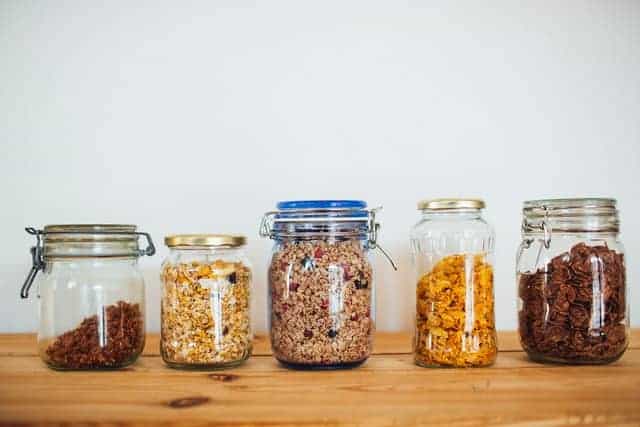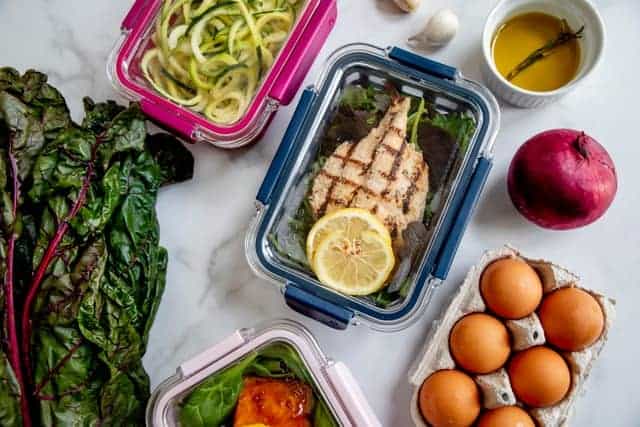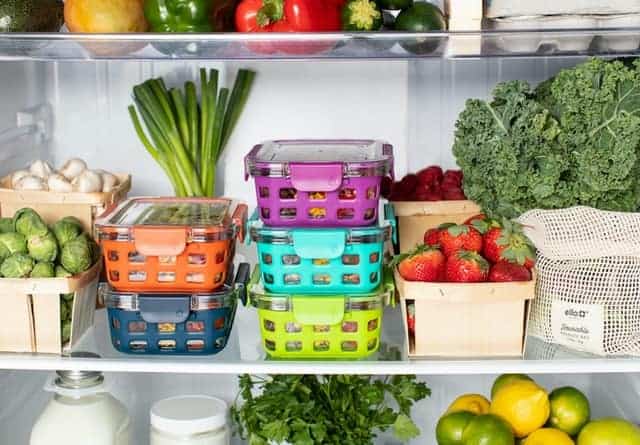How to Store Food in a Sustainable Way?
Knowing how to store food correctly is essential for limiting food waste. Our reflex is often to use single-use or plastic covers, such as food film. But what effects do they have on our health and the environment? How can we preserve our food in an eco-responsible way? In this article, we look at zero-waste alternatives and tips to preserve food for longer without endangering your body or the planet.

How to be sustainable?
Preserving food
Plastic is a frequently used material in the food industry. While it is suitable for food preservation, its negative impact on the environment and our health has been proven by numerous studies.
Single use plastic objects such as freezer bags or cling film generate a huge amount of waste. Certain chemical components added during their manufacturing process can leach out of the plastic and into the food and beverages we consume, especially when warming in a microwave.
Aluminium foil is also being singled out by several studies. Especially when heated, it deposits particles on the food wrapped or covered with it. Our bodies have no way of eliminating aluminium, and if ingested in large quantities, it can become toxic. It is, therefore, better to limit its use when cooking.
Good alternatives to preserve food are glass jars and containers, ice cube trays, beeswax wrappers and cloth.
Reducing food waste
Reducing the amount of food that goes to waste is difficult for many people. Start a shopping list, buy seasonal and only what you need! This reduces the chances of food items expiring on your shelf or in the refrigerator. Also check the expiry dates and when organising your pantry, use the FIFO (first in, first out) method for fresh produce and the FEFO (first expired, first out) for prepacked and canned food. Portion your recipes and make just enough for the day. Leftovers can be recycled or you can choose to pack and freeze or refrigerate them for later consumption.

Also read: 6 tips to cook more eco friendly
Organizing the fridge
In most homes the fridge is widely used for food storage purposes. Choose one that is eco-friendly with minimum environmental impact and keeping it perfectly organized will play an essential role in ensuring you save energy, and the stored foods don’t spoil easily.
It is essential to leave space between stored food, so the cool air circulates well, and the temperature distribution is not affected. Some modern refrigerators also have so-called zero-degree zones, in which fruit and vegetables can be stored particularly gently.

Food must be well protected in the refrigerator by storing it in closed or wrapped containers. This will prevent food drying out, and above all, cross-contamination or change in flavour and taste.
Also read: 7 food waste solutions
Tips to keep fruit and vegetables longer
- Rinse vegetables with sodium bicarbonate and before storing in the fridge, wrap in a paper towel or in a sealed container or bag.
- Some fruits produce a natural gas called ethylene, which accelerates the ripening of other products. Apples, bananas, kiwis and mangos are just a few and it is recommended to keep them separate from other foods
- Treat herbs like flowers. Don’t just place them in the fridge with other products but place them in a glass of water like a beautiful bouquet. They will not only stay fresh longer but they will also spread their beautiful aromas in your kitchen.
- Don’t wash grapes or mushrooms, just store them in a cool, dry place.
- Some food should not be stored in the fridge. Onions, garlic and shallots can easily be kept without being refrigerated. Unripe tomatoes will ripen best in a dark place at room temperature. Potatoes have a long shelf life, especially when kept in a dark, dry place.
Conclusion
Storing food correctly in a sustainable way is essential for environmental preservation and waste reduction. Store food in the correct way, consider materials and follow the correct procedures to reduce waste and save the environment.